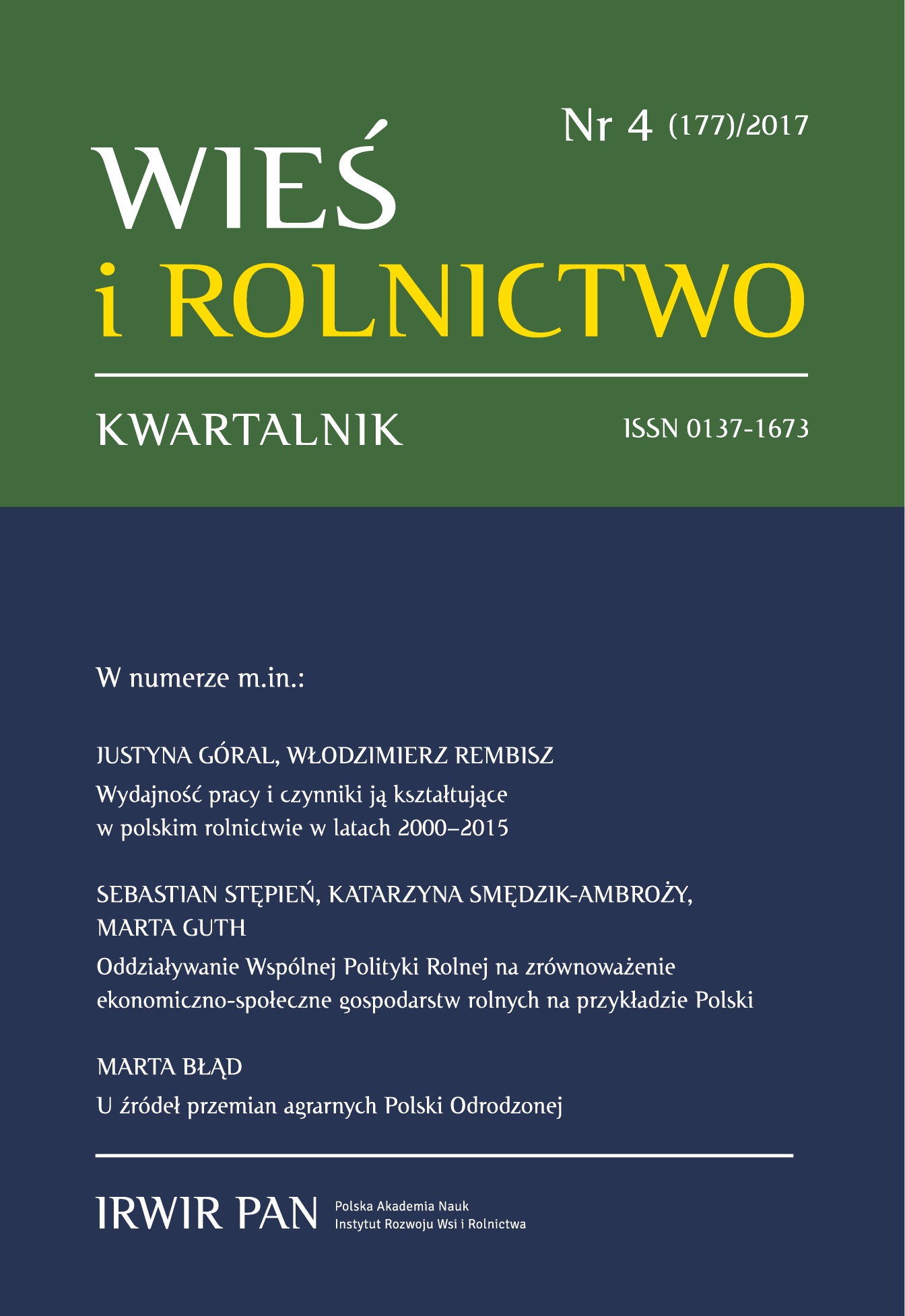Oddziaływanie Wspólnej Polityki Rolnej na zrównoważenie ekonomiczno-społeczne gospodarstw rolnych na przykładzie Polski
The Impact of the Common Agricultural Policy on the Socio-Economic Sustainability of Farms. An Example of Poland
Author(s): Sebastian Stępień, Katarzyna Smędzik-Ambroży, Marta GuthSubject(s): Geography, Regional studies, Agriculture
Published by: Instytut Rozwoju Wsi i Rolnictwa Polskiej Akademii Nauk
Keywords: socio-economic sustainability; Common Agricultural Policy; farms of FADN; Poland; zrównoważenie ekonomiczno-społeczne; Wspólna Polityka Rolna; gospodarstwa FADN; Polska
Summary/Abstract: The concept of sustainable development emerged in the second half of the twentieth century and played an important role in determining the relationship between economic growth, social development and environmental care. In the first stage of paradigm formation the superiority of environmental issues was recognized, but as the globalization progressed, negative economic and social effects of uneven distribution of income, poverty and social exclusion began to reveal. This issue was also recognized at the European Union level, by i.a. creating sectoral policies, including the Common Agricultural Policy (CAP). One of the most important assumptions of the former and current CAP is to guarantee a decent standard of living for the agricultural population through various forms of support. In order to uphold sustainability, support mechanisms should be designed in such a way as to ensure simultaneously a high level of agricultural income (economic component), a relatively equal distribution of money among agricultural producers (social component) and care for natural resources (environmental component). The aim of this article is to define the impact of the CAP on the level of economic and social sustainability of agricultural holdings in Poland. The authors hypothesize that existing solutions serve to achieve economic sustainability (defined by the ratio of agricultural income to non-agricultural income), but do not balance agricultural holdings with respect to the social component (taking into account income disparities). Methods used in the paper include critical analysis of the literature, meta-analysis, inductive inference methods, as well as selected methods of quantitative analysis – regression and panel analysis. The subject area covers agricultural holdings belonging to Farm Accountancy Data Network (FADN) system, the time range embracing the period 2004–2013.
Journal: Wieś i Rolnictwo
- Issue Year: 177/2017
- Issue No: 4
- Page Range: 39-58
- Page Count: 20
- Language: Polish

